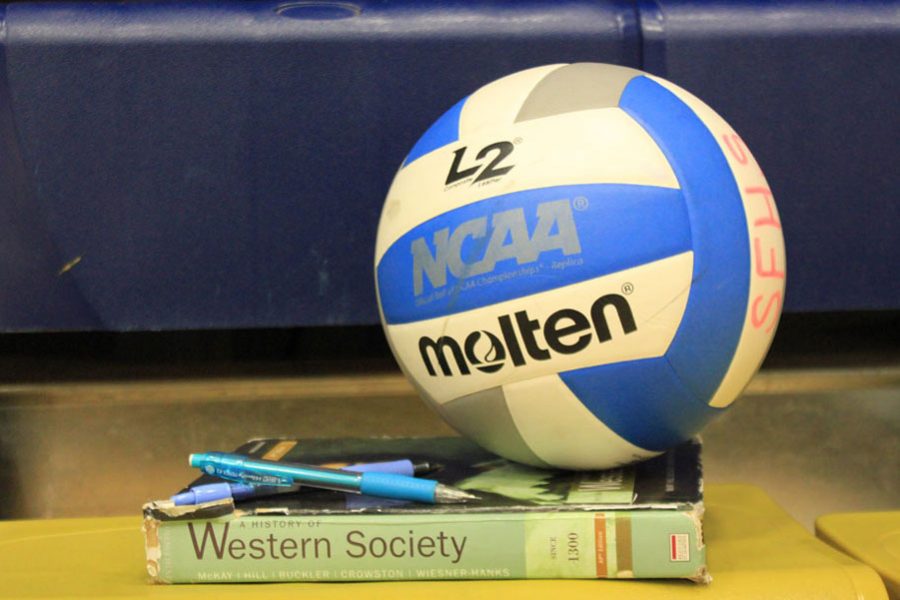Athletics vs. Academics: Who Has the Spotlight?
October 6, 2016
Imagine this: It’s your high school football team’s annual rivalry game. School spirit is high and the cheers are loud. The bleachers are filled with parents and students, watching with hopeful eyes and wanting to take the win.
Across the street your high school’s science club is participating in the city’s annual science fair. With speeches and presentations prepared to wow the judges, the science club hopes to take first place for the third year in a row.
The next morning at school during the long list of announcements, you hear the principal congratulate the football team on their great performance during the big game. The announcements eventually end. But wait, the science club got first place last night. Their achievements are important too, right?
“There’s definitely more attention paid to athletics and it’s been that way in Northern New Mexico since I was a kid,” Santa Fe High’s directing principal Mr. Carl Marano said. “We need to create that balance.”
And not only academic achievements are on the back burner: Sports such as cross-country, volleyball and tennis don’t get as much recognition as football, cheer or basketball.
Football teams have pep rallies before big games, and the cheer team gets to perform at assemblies. But what do the other sports get? They get to stand up at an assembly for two seconds of recognition.
Mr. Marano said, “Even the newspaper, even our media, even the school — you know we recognize the football team winning or the basketball team doing well. A lot of times, other things are forgotten.”
Sophomore Julie Rivera juggled the responsibility last year of being both a volleyball player and a 3.8 GPA student. With tiring practices every day and late nights doing homework, Julie was able to keep up with her honors classes. She was even recognized by her biology teacher, Mr. Graham, for academic excellence in his class.
But Julie said her athletic achievements had more of a spotlight on them, and her academic achievements were less acknowledged. “When you play a sport, no matter what, you receive a letter. But if you pass a rigorous class with great grades, you wouldn’t get recognition,” she said.
“Even if you’re not the star player on the team, you still receive that letter,” Julie continued. “In academics, you’re not given anything. You don’t even get a ‘Hey, good job on your work.’ It really does suck.”
When asked what possible steps could be taken to create a balance, Julie said, “Students should have a higher GPA to participate in sports. Coaches and administration should check up on students’ grades more often.” (The current academic requirements to participate in sports are to have no more than one F, and to maintain a GPA of 2.0.)
“I don’t think it’s necessarily people doing this on purpose,” Mr. Marano said. “It’s just been this way for years. And now people are saying ‘Hey, where are we putting our priorities, and where should they be?’ ” he said.
Mr. Marano plans to discuss ways to create that balance during open forum at a school board meeting, which he will encourage students to attend.
“We have to get our voices heard,” he said, “especially the students.”


